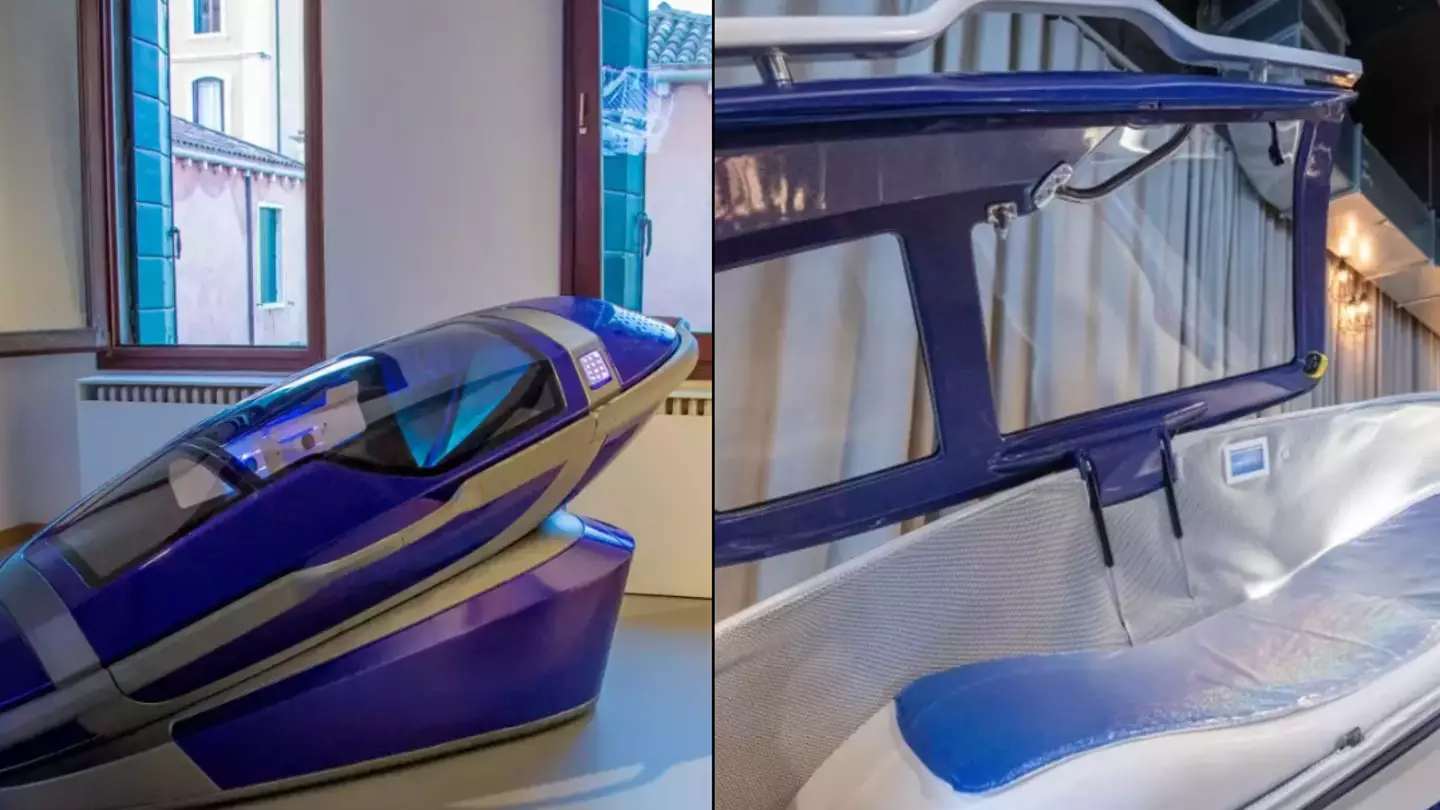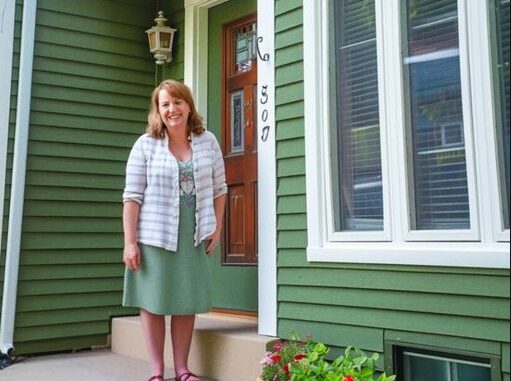Peter and Christine, who have been married for 46 years, are planning on travelling to Switzerland to die together
Warning: This article contains discussion of suicide which some readers may find distressing
The first British couple to sign up for Exit International’s suicide pod will be asked three questions before they end their lives together.
Peter, 86, and Christine Scott, 80, have been married for 46 years. But they are now planning on travelling to Switzerland to die together after former nurse Christine was diagnosed with vascular dementia.
The couple, who have six grandchildren, are in the process of signing up with Swiss organisation The Last Resort, who have given them the option to die in the Sarco death capsule.
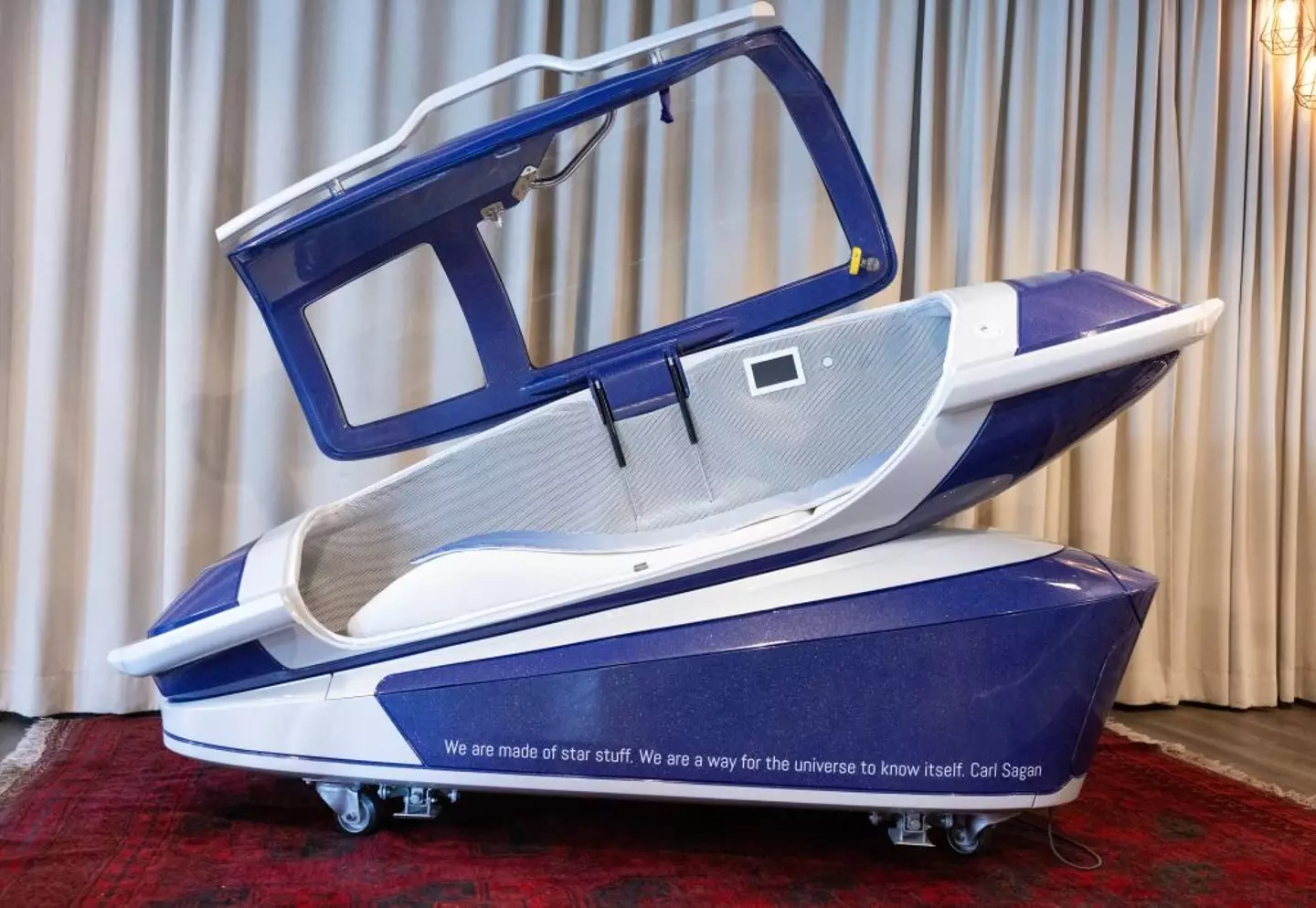
The Sarco pod that the British couple plan on ending their lives in (ARND WIEGMANN/AFP via Getty Images)
Former RAF pilot Peter told the Daily Mail: “We have had long, happy, healthy, fulfilled lives but here we are in old age and it does not do nice things to you.
“The idea of watching the slow degradation of Chris’s mental abilities in parallel to my own physical decline is horrific to me.
“Obviously I would care for her to the point I could not, but she has nursed enough people with dementia during her career to be adamant she wants to remain in control of herself and her life.
“Assisted dying gives her that opportunity and I would not want to go on living without her.”
“Assisted dying gives her that opportunity and I would not want to go on living without her.”
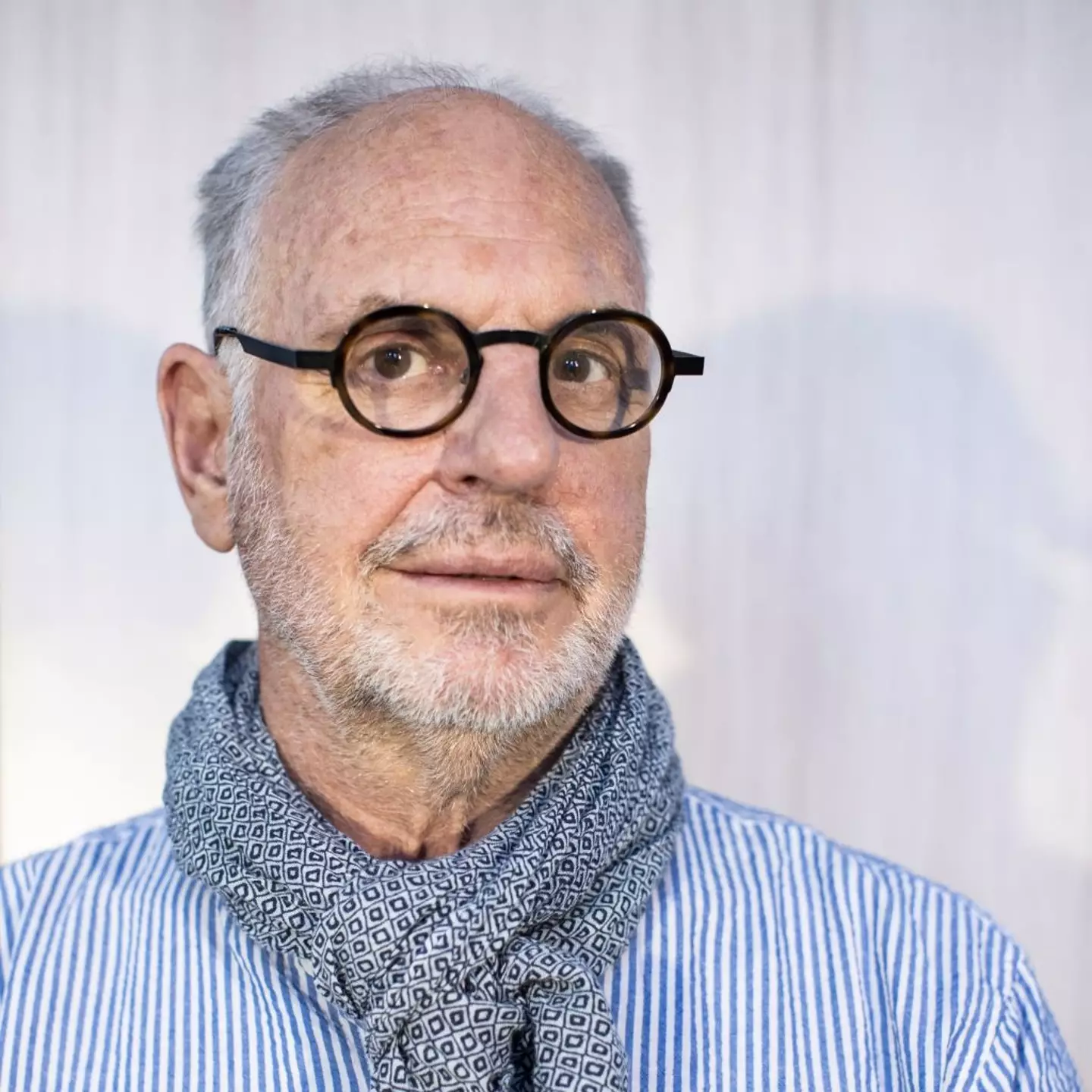
Philip Nitschke created the suicide pod (JASPER JUINEN/AFP via Getty Images)
Christine – who has spent much of her career looking after patients with dementia – added: “It’s a lovely life but I have this diagnosis, and that’s crystallised our thinking.
“Medicine can slow vascular dementia but it can’t stop it. At the point I thought I was losing myself, I’d say: ‘This is it, Pete, I don’t want to go any further’.”
Dubbed the Sarco Pod, Exit International said the ‘sarcophagus’ is a capsule that can ‘produce a rapid decrease in oxygen level, while maintaining a low CO2 level, (the conditions for a peaceful, even euphoric death)’.
Creator Dr. Philip Nitschke also explained to MailOnline that users would be asked three questions upon entering the machine.
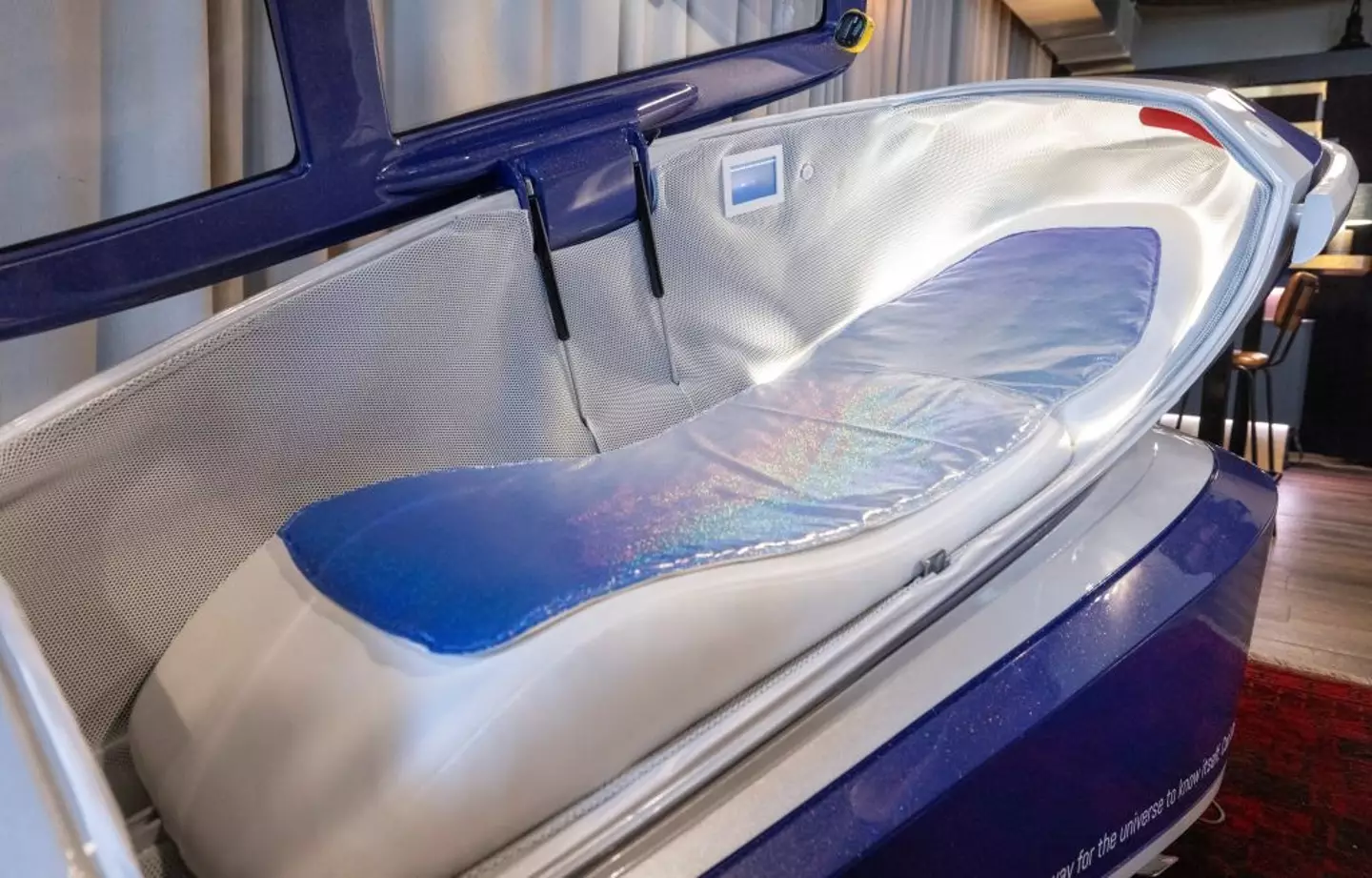
Three questions are asked once inside (ARND WIEGMANN/AFP via Getty Images)
There questions would be: ‘Who are you?’, ‘Where are you?’ and ‘Do you know what happens if you press the button?’
“If they answer those questions verbally, the software then switches the power on so that the button can then be pressed,” he said.
“And if they press the button they will die very quickly. When you climb into Sarco the oxygen level is 21 percent but after you press the button it takes 30 seconds for the oxygen to drop to less than one percent.”
If you’ve been affected by any of these issues and want to speak to someone in confidence, please don’t suffer alone. Call Samaritans for free on their anonymous 24-hour phone line on 116 123.
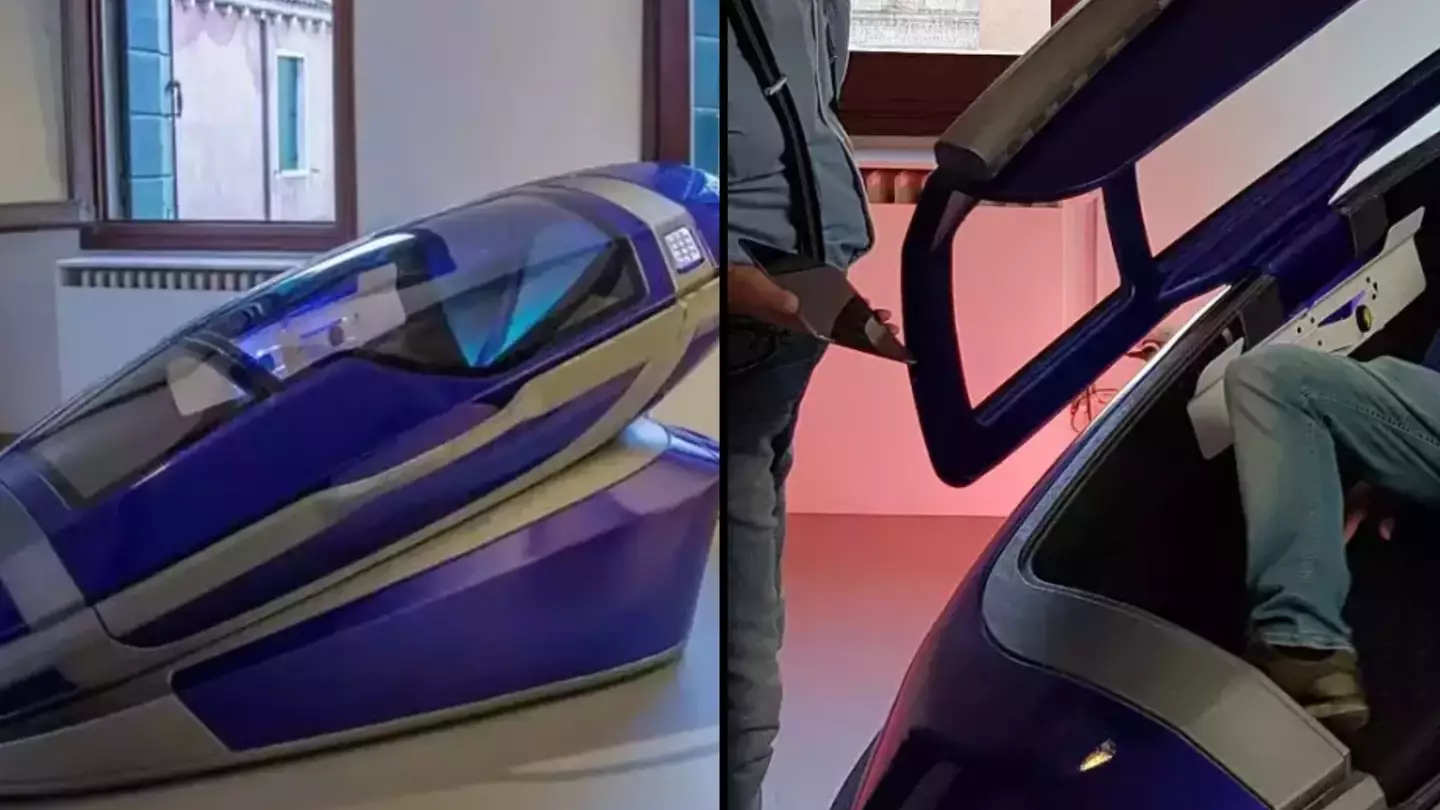
Updated 13:43 29 Jul 2024 GMT+1Published 13:28 29 Jul 2024 GMT+1
Suicide pod death called off at last minute as first person was set to die in machine
A woman from the US, in her 50s, was scheduled to be the first person to use the Sarco pod

Olivia Burke
The creator of a controversial ‘suicide pod’ which claims to painlessly end the life of the occupant at the push of a button called off its launch at the last minute.
Dr Philip Nitschke – who has been dubbed ‘Dr Death’ – announced that plans for the first ever patient, referred to as Person X, to climb inside of the Sarco pod have been ‘permanently postponed’.
The woman, from the US and in her 50s, was scheduled to use the high-tech assisted dying system that has been described as the ‘Telsa of euthanasia’ on 17 July.
Prosecutors in Switzerland’s Schaffhausen Canton warned Australian medic Dr Nitschke, 76, that going ahead with it could land him in severe legal trouble, saying that there would be ‘serious consequences’.
However, it wasn’t the fear of prosecution which has forced the team at pro-euthanasia group Exit International to pump the breaks on their plans – although the medic believes the subsequent ‘media storm’ it brought did impact the patient.
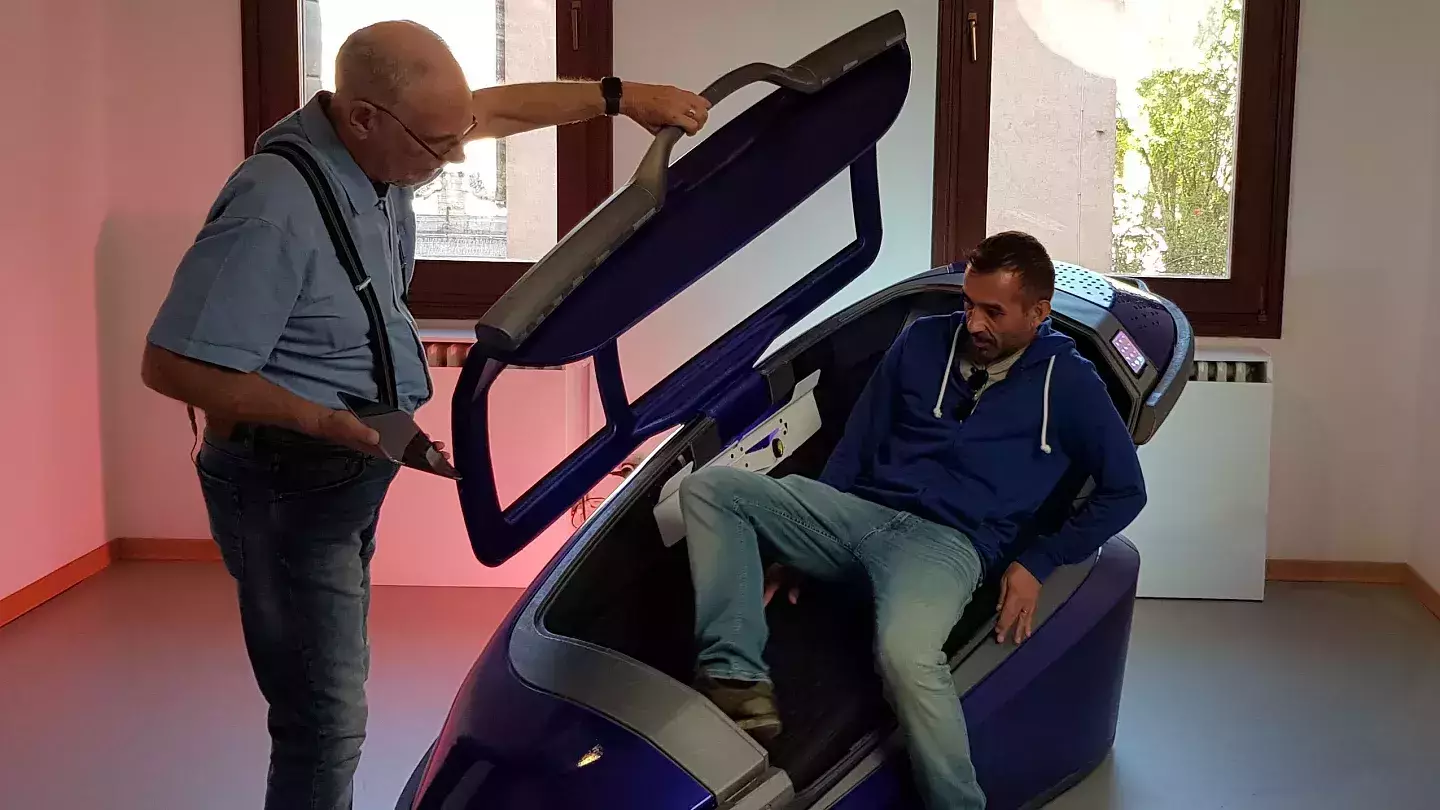
The debut of Dr Philip Nitschke’s creation was called off (Exit International)
The group’s founder and the Sarco pod’s inventor Nitschke explained that Person X was suffering from ‘deteriorating mental health’, which is why her assisted suicide and the debut of his creation has been ‘aborted’.
He said: “Given her situation, it is clear that this is a person who should now be receiving mental health care, rather than any suicide assistance.”
According to the Daily Mail, the euthanasia advocate will be involved in the assessment and pre-screening of the next candidate who wishes to end their life with the Sarco pod.
Nitschke said: “Given the media scrutiny surrounding Person X, all future clients will need to be warned of the possibility that, despite our best efforts to keep their death private, any first use of Sarco will be the subject of intense media interest and reporting.”
He explained that concerns had been raised regard Person X after she experienced ‘multiple episodes of significant cognitive lapses bordering on pre-psychosis’ as the date of her scheduled death loomed.
When 17 July finally rolled around, a euthanasia group named ‘The Last Resort’ announced that the Sarco pod would be instead used within the next year.

The Sarco pod has been the subject of fierce debates surrounding assited dying (Exit International)
Exit International claim that the 3D-printed capsule can provide people who want to end their lives with a ‘painless death’ within minutes.
It works by flooding the chamber with nitrogen, reducing oxygen levels rapidly so that individuals inside quickly feel woozy before falling unconscious after just one minute, and dying after 10.
Nitschke said that he came up with the death capsule in order to create a ‘peaceful, reliable, drug-free’ method of assisted dying which allowed the patient to have full control of their final moments.
Exit International have even made sure the Sarco pods can be activated via voice control and eye movement for those who have very severe illnesses and mobility issues, such as locked-in syndrome.
Nitschke was even toying with the idea of trying to bring them to the UK at one point.
He previously highlighted that the capsule went through thorough testing and said that he ‘will probably use the Sarco’ in his final days instead of being ‘in a miserable state while seriously ill.’Featured Image Credit: Exit International
Suicide pod inventor wants to install them in UK as first person ‘set to use it this month’
The planned first use of the pod has been challenged in Switzerland

Joe Harker
Warning: This article contains discussion of suicide which some readers may find distressing
The inventor of a pod within which a person can take their own life would like to bring them to the UK, while a plan for it to be used for the first time in Switzerland has faced a legal challenge.
Dr Philip Nitschke, who has been given the nickname ‘Dr Death’ by some, developed the Sarco Pod with his company Exit International.
The pod works by having the occupant be able to fill the chamber with nitrogen gas, resulting in a rapid decrease in the levels of oxygen with the intention being that the person inside falls unconscious within about a minute and dies after about 10 minutes.
The device is sometimes referred to as a ‘suicide pod’ as the person inside who would die as a result of activating it is the one who must press the button, an action they would know would result in their death.
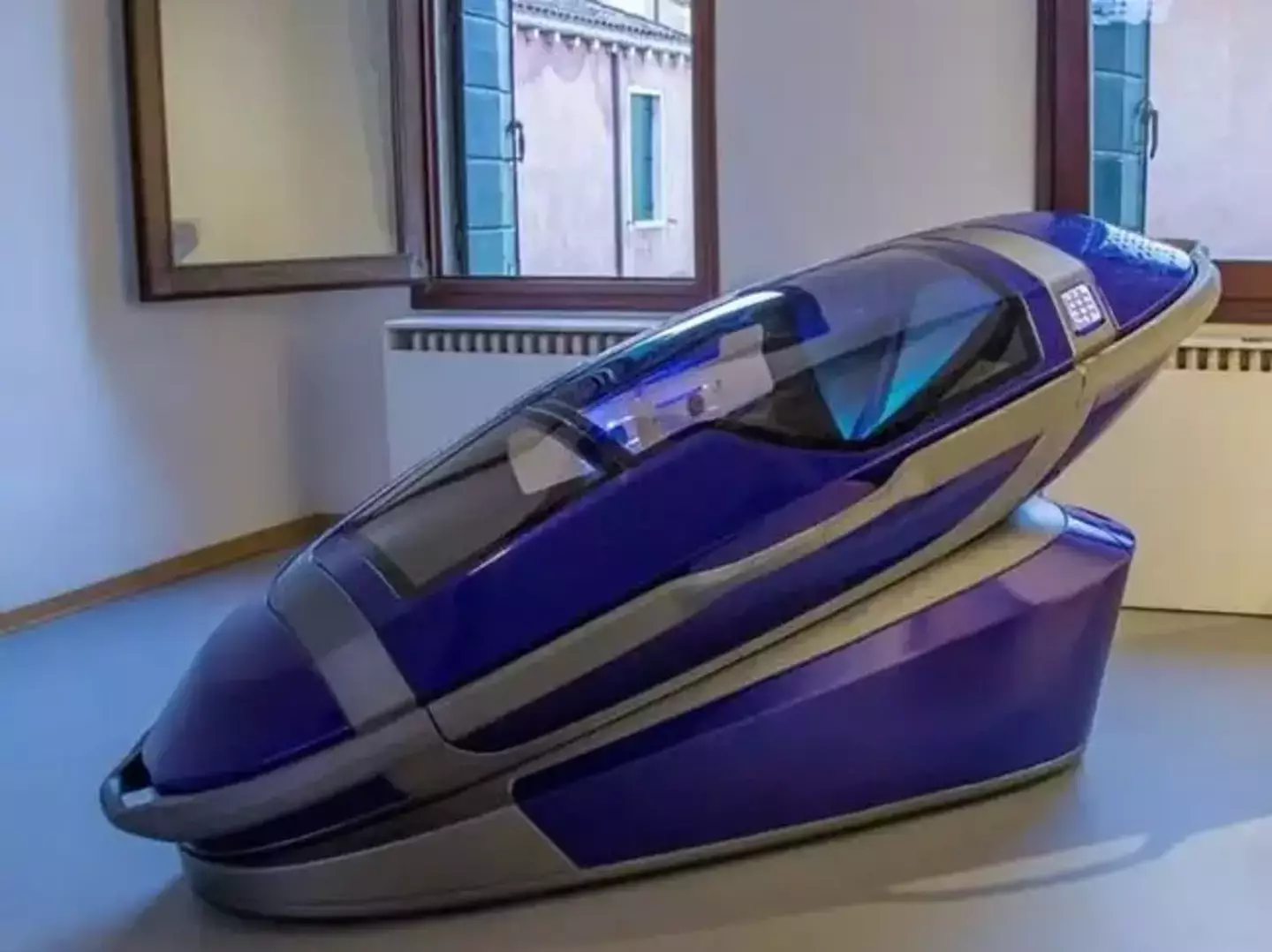
This is the Sarco Pod, a euthanasia device whose creator wants to bring it to the UK. (Exit International)
There is also an emergency escape button the occupant can press if they change their minds.
Exit International claims that their pod will allow for ‘a peaceful, even euphoric death’, but plans to use it for the first time have hit difficulties.
There had been plans to use the Sarco Pod for a euthanasia patient in Switzerland, with Dr Nitschke saying on 10 June that it would be done ‘in the next few weeks’.
However, Swiss prosecutor Peter Sticher has warned that anyone assisting a person in using the pod could face up to five years in prison.
He warned there would be ‘serious consequences’ if the pod was used, saying it would constitute ‘inducement and aiding and abetting suicide for selfish reasons’.
Under Swiss law, a person can assist in someone else’s suicide as long as there is not a ‘selfish’ motive for doing so.
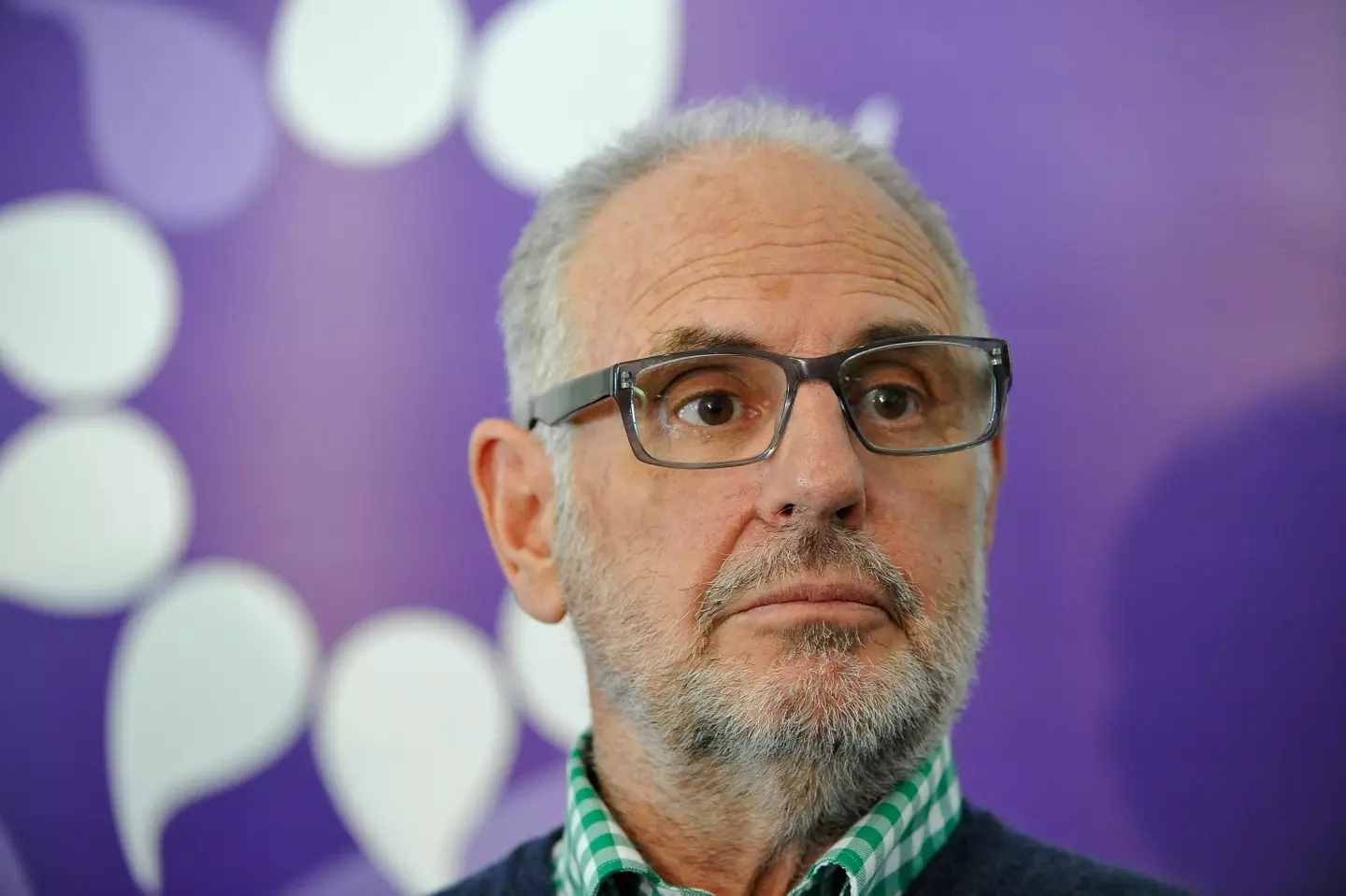
Dr Philip Nitschke could face jail time if he goes ahead with using his pod in Switzerland. (David Mariuz/Getty Images)
Sticher said that when it came to the Sarco Pods, ‘there is no reliable information about the method of killing’.
He said it was ‘completely unclear who has control over which mechanical process during the dying process’.
Authorities in Switzerland are also concerned that the pod will not perform as advertised, and a review from the Massachusetts Institute of Technology (MIT) has said that if the pod malfunctions, it could lead to the patient suffering a painful death.
The inventor also previously expressed plans to bring the pod to the UK.
LADbible has contacted Exit International for comment.
If you’ve been affected by any of these issues and want to speak to someone in confidence, please don’t suffer alone. Call Samaritans for free on their anonymous 24-hour phone line on 116 123.
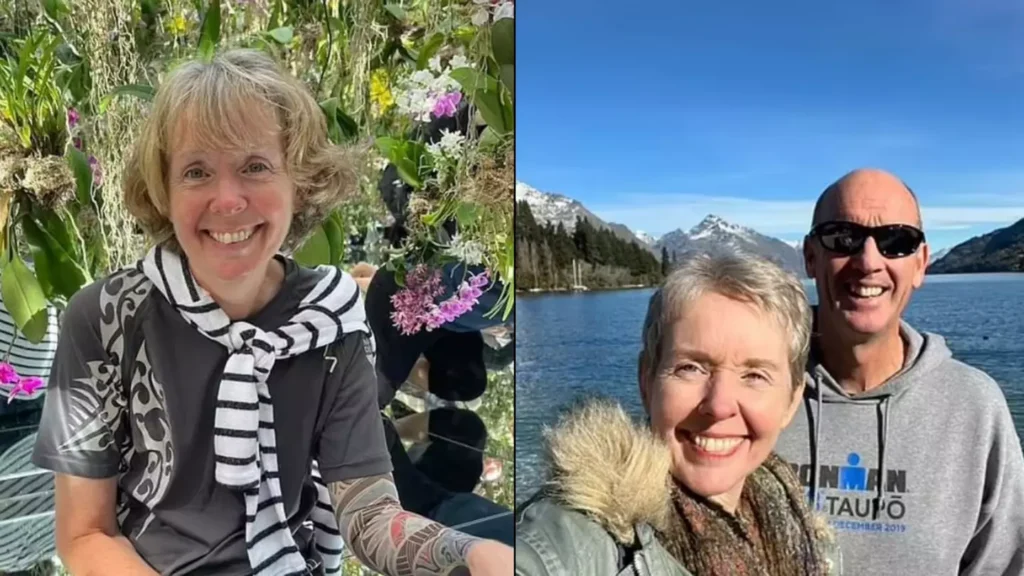
British woman set to die by euthanasia in New Zealand next week makes urgent plea about law in UK
Tracy Hickman wants Brits to also have ‘the right to a peaceful, gentle death’

Olivia Burke
A British woman who is set to die by euthanasia in New Zealand next week has urged the UK to follow the country’s lead and to change the laws surrounding assisted dying.
Tracy Hickman has shared a poignant message to politicians in the hopes of encouraging them to redefine the UK’s rigid stance on allowing seriously ill people to have the choice to end their life.
The 57-year-old, who has terminal cancer, wants people in her position to be able to decide for themselves when the time is right, rather than having to anticipate an ‘uncertain and painful death’.
Tracy Hickman discusses euthanasia
Tracy, who has dual British and New Zealand nationality, has chosen to die by euthanasia in the Kiwi country on 22 May, which is just over a week away.
Laws there, brought in under the End of Life Choice Act in 2019, allow competent adults to choose an assisted death under the conditions that they have a terminal illness, are aged 18 or over and have six months to live.
Patients who go for this option must also be in ‘unbearable suffering’ which cannot be alleviated, while also being in an ‘advanced state of irreversible decline in physical capability’.
On the other hand, both euthanasia and assisted suicide is outright illegal in the UK and could be prosecuted as murder or manslaughter.
Campaign groups say the process for Brits has simply been ‘outsourced to Switzerland’, but warned that families are facing astronomical costs when having to go abroad to fulfil the dying wishes of a loved one.

Tracy Hickman has called on politicians to change UK euthanasia laws (Facebook/Tracy Hickman)
That’s why Tracy wants to use the little time she has left to put pressure on the UK government to alter the laws, as she told how her diagnosis and inability to undergo euthanasia here left her considering suicide by refusing food and drink.
Speaking to The Guardian, the cancer sufferer addressed MPs as she said: “Look at what New Zealand has done, and do it even better.
“There is a lot of focus on the right to life, but people should have the right to a peaceful, gentle death.”
Her sister Linda Clarke, who lives in the UK, echoed her call for change as she said that without the options available in New Zealand being on the table, she would have had to watch her sibling ‘go through a horrific death’.
Tracy hopes that sharing her story will help others, like Linda – who was diagnosed with breast cancer in 2015 and also Parkinson’s in 2020 – be able to make their own decisions about dying.
Her sister added: “My cancer could come back. I don’t know what my future is. I live in the UK, but I want the same choices that Tracy has. I want the right to choose.”

The 57-year-old has lived in New Zealand for 20 years and is eligible for assisted dying under the End of Life Choice Act (Facebook/Tracy Hickman)
Tracy, an accountant and keen long distance runner, explained that she had been diagnosed with breast cancer in March 2019 after a routine mammogram even though she was fit, leading a vegetarian lifestyle and staying off the booze.
She underwent surgery and chemotherapy, but complained of suffering ‘horrendous’ side-effects such as hearing loss and the mental fogginess of ‘chemo brain’, although the treatment did help to reduce the cancer.
The Brit returned to work and was running marathons again, however, by February last year, the cancer had returned and spread – while more treatment brought along more crippling side-effects.
Tracy suffered from incontinence, extreme fatigue and was in serious pain, but claimed she was told by doctors that she was not eligible for an assisted death as they believed she had more than six months to live.
In March this year, it emerged that she had dozens of tumours in her brain and medics said she probably only had three months at best – a conversation which she described as a ‘huge shock’.

She will gather with her loved ones at a beach on 22 May to take her last breaths (Getty stock photo)
Tracy, who has lived in New Zealand for 20 years, says she is now taking morphine ‘day and night’ and decided to apply for assisted dying rather than simply existing until her time runs out, which is a decision she feels ‘at peace’ with.
Patients who opt for this go through assessments by two separate doctors before choosing a date.
Tracy said she has been saying goodbye to her loved ones, doing ‘nice things’ and a ‘bit of life admin’ as the day draws closer – adding that she is ‘so sorry for causing distress to my family and friends, although they understand’.
On 22 May, she will gather on a secluded beach with a small group of her nearest and dearest, including her beloved partner and sister.
When Tracy gives the go ahead, a medical team will administer drugs and she will lose consciousness within a matter of a few minutes.
“I’ll hear the sound of the waves. It will be very gentle,” Tracy added.Featured Image Credit: Facebook/Tracy Hickman
